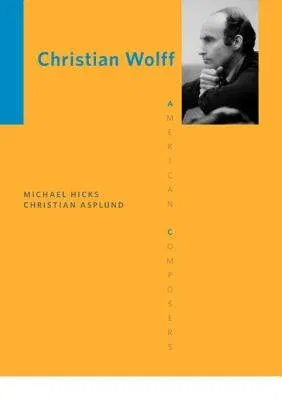In this first interpretive narrative of the life and work of Christian
Wolff, Michael Hicks and Christian Asplund trace the influences and
sensibilities of a contemporary composer's atypical career path and
restless imagination. Written in full cooperation with Wolff, including
access to his papers, this volume is a much-needed introduction to a
leading avant-garde composer still living, writing music, and speaking
about his own work. Wolff has pioneered various compositional and
notational idioms, including overtly political music, indeterminacy,
graphic scores, and extreme virtuosity. Trained as a classicist rather
than a musician, Wolff has never quite had both feet in the rarefied
world of contemporary composition. Yet he's considered a "composer's
composer," with a mind ensconced equally in ancient Greek tragedy and
experimental music and an eccentric and impulsive compositional approach
that eludes a fixed stylistic fingerprint. Hicks and Asplund cover
Wolff's family life and formative years, his role as a founder of the
New York School of composers, and the context of his life and work as
part of the John Cage circle, as well as his departures from it.
Critically assessing Wolff's place within the experimental musical
field, this volume captures both his eloquence and reticence and
provides insights into his broad interests and activities within music
and beyond.

